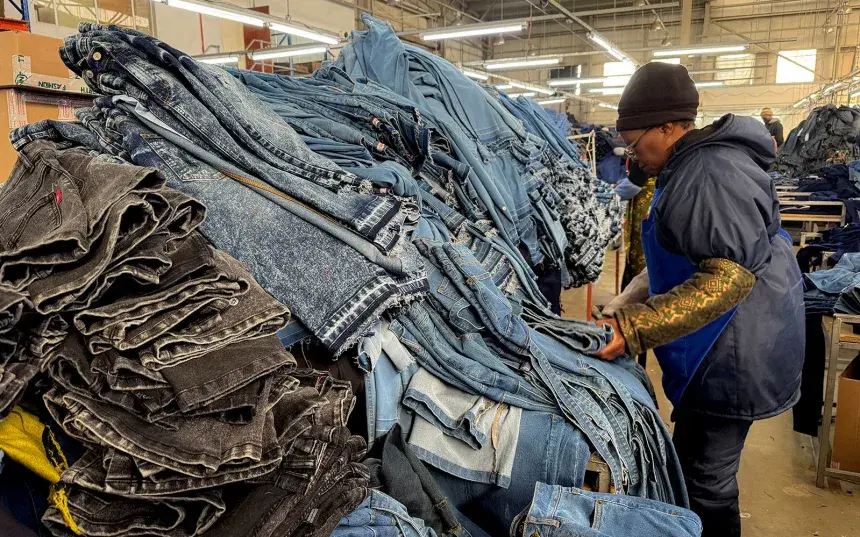U.S. Tariffs Push African Nations into China’s Embrace: A New Global Trade Reality
- Next News
- Aug 3, 2025
- 3 min read
African nations are grappling with the harsh realities of U.S. President Donald Trump's tariffs, facing some of the highest export charges on the continent. However, what some see as a crisis, the United States' primary rival, China, sees as a major opportunity. China, which has long courted African countries, is now offering them a new lifeline.

"We (Africa) are going straight into the hands of China," states Nigerian economist Bismarck Rewane, describing this as an "unfortunate outcome." This shift is happening as China has solidified its position in recent years as the continent's largest bilateral trading partner. Four African nations—Libya, South Africa, Algeria, and Tunisia—are particularly affected, facing charges on their exports ranging from 25% to 30%. An additional eighteen countries are hit with 15% levies.
Initially, Trump framed these import levies as "reciprocal," targeting nations he claimed had trade deficits with the U.S. However, this claim was challenged by countries like South Africa, which argued that the 30% tariff was "not based on an accurate representation of available trade data."
A Golden Opportunity for China
China has stepped in, offering to soften the blow of the U.S. tariffs. In June, Beijing announced it would halt charges on imports for nearly all its African partners. South African researcher Neo Letswalo sees this as a crucial moment for African nations to "solely turn to China and make it the next U.S.," arguing that "America is gradually forfeiting its global leadership status."
The U.S. failure to negotiate a trade deal with any African nation before the tariff deadline, despite efforts from the continent, underscores Africa's low priority for the White House. Letswalo describes this lack of negotiation as "an open goal for China."
Tariffs' Devastating Impact on African Economies
The consequences of Trump's tariffs are already being felt in some of Africa's most robust and poorest economies. Lesotho, for instance, which was hit with a 15% tariff after an initial 50% charge, is in a state of crisis. Its Prime Minister, Samuel Matekane, stated that the massive tariff, combined with a halt in U.S. aid, "have crippled industries that previously sustained thousands of jobs." This is despite the fact that trade between the U.S. and Lesotho totaled over $240 million last year, primarily in textiles.
In South Africa, the Citrus Growers' Association (CGA) has warned that the tariffs will lead to "job losses [being] a certainty," noting that "hundreds of thousands of cartons of citrus" ready to be shipped to the U.S. will likely "be left unsold." The country's automobile sector also faces economic shocks, with some companies threatening to leave. In response, South Africa’s Minister of Mineral and Petroleum Resources, Gwede Mantashe, has stated that the country is actively seeking alternative markets.
Is Leaning on China a Risky Strategy?
Despite the immediate relief, Letswalo cautions that relying on China is not without its risks. "Alternating U.S. with China could be risky," he said, particularly for "nascent industries within the [African] countries." He warns that cheap Chinese products could "flood and outcompete them as many African countries are price sensitive markets."
Reports from the China-Global South Project (CGSP) indicate that many China-Africa trade deals are imbalanced, with trade deficits skewed in China's favor. The bulk of China's exports to Africa are manufactured products, while Africa's exports to China are largely raw materials. South Africa's President Ramaphosa has previously advocated for balanced trade with his Chinese counterpart.
To mitigate these risks, Letswalo suggests that Africa must also look inward and seek domestic alternatives. He recommends a swift implementation of the African Continental Free Trade Area (AfCFTA), a deal aimed at boosting intra-African trade. While AfCFTA was established in 2020, its implementation has been slow. Rewane believes the U.S. tariffs could be a catalyst for Africa to "build economic resilience and be less dependent on lopsided trade," and to become "more inward-looking rather than outward-dependent."









Comments